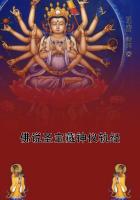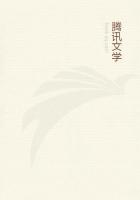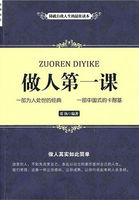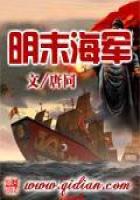“No, not exactly because of it,” answered Porfiry. “In his article all men are divided into ‘ordinary’ and ‘extraordinary.’ Ordinary men have to live in submission, have no right to transgress the law, because, don’t you see, they are ordinary. But extraordinary men have a right to commit any crime and to transgress the law in any way, just because they are extraordinary. That was your idea, if I am not mistaken?”
“What do you mean? That can’t be right?” Razumihin muttered in bewilderment.
Raskolnikov smiled again. He saw the point at once, and knew where they wanted to drive him. He decided to take up the challenge.
“That wasn’t quite my contention,” he began simply and modestly. “Yet I admit that you have stated it almost correctly; perhaps, if you like, perfectly so.” (It almost gave him pleasure to admit this.) “The only difference is that I don’t contend that extraordinary people are always bound to commit breaches of morals, as you call it. In fact, I doubt whether such an argument could be published. I simply hinted that an ‘extraordinary’ man has the right … that is not an official right, but an inner right to decide in his own conscience to overstep … certain obstacles, and only in case it is essential for the practical fulfilment of his idea (sometimes, perhaps, of benefit to the whole of humanity). You say that my article isn’t definite; I am ready to make it as clear as I can. Perhaps I am right in thinking you want me to; very well. I maintain that if the discoveries of Kepler and Newton could not have been made known except by sacrificing the lives of one, a dozen, a hundred, or more men, Newton would have had the right, would indeed have been in duty bound … to eliminate the dozen or the hundred men for the sake of making his discoveries known to the whole of humanity. But it does not follow from that that Newton had a right to murder people right and left and to steal every day in the market. Then, I remember, I maintain in my article that all … well, legislators and leaders of men, such as Lycurgus, Solon, Mahomet, Napoleon, and so on, were all without exception criminals, from the very fact that, making a new law, they transgressed the ancient one, handed down from their ancestors and held sacred by the people, and they did not stop short at bloodshed either, if that bloodshed—often of innocent persons fighting bravely in defence of ancient law—were of use to their cause. It’s remarkable, in fact, that the majority, indeed, of these benefactors and leaders of humanity were guilty of terrible carnage. In short, I maintain that all great men or even men a little out of the common, that is to say capable of giving some new word, must from their very nature be criminals—more or less, of course. Otherwise it’s hard for them to get out of the common rut; and to remain in the common rut is what they can’t submit to, from their very nature again, and to my mind they ought not, indeed, to submit to it. You see that there is nothing particularly new in all that. The same thing has been printed and read a thousand times before. As for my division of people into ordinary and extraordinary, I acknowledge that it’s somewhat arbitrary, but I don’t insist upon exact numbers. I only believe in my leading idea that men are in general divided by a law of nature into two categories, inferior (ordinary), that is, so to say, material that serves only to reproduce its kind, and men who have the gift or the talent to utter a new word. There are, of course, innumerable sub-divisions, but the distinguishing features of both categories are fairly well marked. The first category, generally speaking, are men conservative in temperament and law-abiding; they live under control and love to be controlled. To my thinking it is their duty to be controlled, because that’s their vocation, and there is nothing humiliating in it for them. The second category all transgress the law; they are destroyers or disposed to destruction according to their capacities. The crimes of these men are of course relative and varied; for the most part they seek in very varied ways the destruction of the present for the sake of the better. But if such a one is forced for the sake of his idea to step over a corpse or wade through blood, he can, I maintain, find within himself, in his conscience, a sanction for wading through blood—that depends on the idea and its dimensions, note that. It’s only in that sense I speak of their right to crime in my article (you remember it began with the legal question). There’s no need for such anxiety, however; the masses will scarcely ever admit this right, they punish them or hang them (more or less), and in doing so fulfil quite justly their conservative vocation. But the same masses set these criminals on a pedestal in the next generation and worship them (more or less). The first category is always the man of the present, the second the man of the future. The first preserve the world and people it, the second move the world and lead it to its goal. Each class has an equal right to exist. In fact, all have equal rights with me—and vive la guerre eternelle—till the New Jerusalem, of course!”
“Then you believe in the New Jerusalem, do you?”
“I do,” Raskolnikov answered firmly; as he said these words and during the whole preceding tirade he kept his eyes on one spot on the carpet.
“And … and do you believe in God? Excuse my curiosity.”
“I do,” repeated Raskolnikov, raising his eyes to Porfiry.
“And … do you believe in Lazarus’ rising from the dead?”
“I … I do. Why do you ask all this?”
“You believe it literally?”
“Literally.”
“You don’t say so. … I asked from curiosity. Excuse me. But let us go back to the question; they are not always executed. Some, on the contrary …”
“Triumph in their lifetime? Oh, yes, some attain their ends in this life, and then …”
“They begin executing other people?”
“If it’s necessary; indeed, for the most part they do. Your remark is very witty.”



